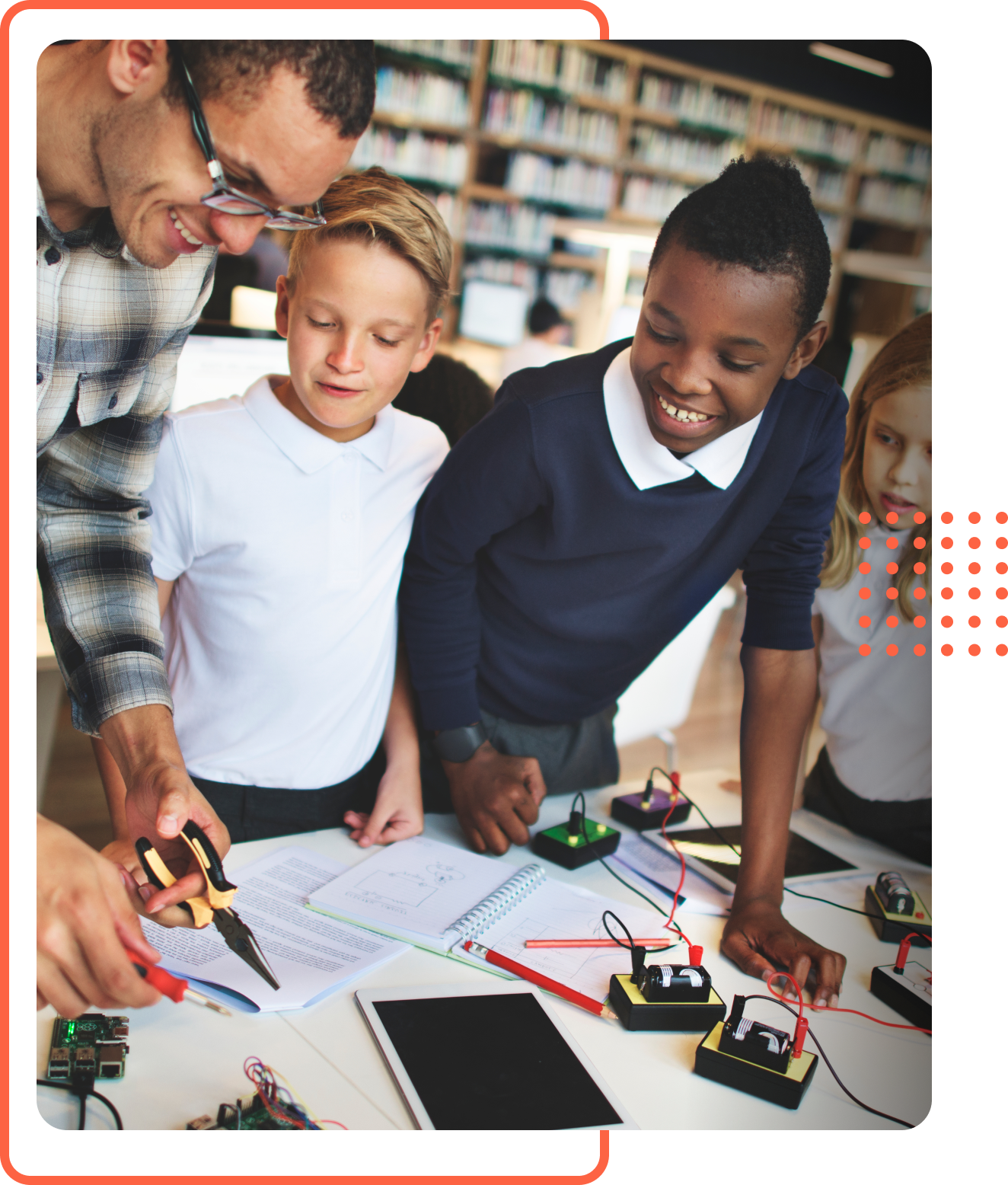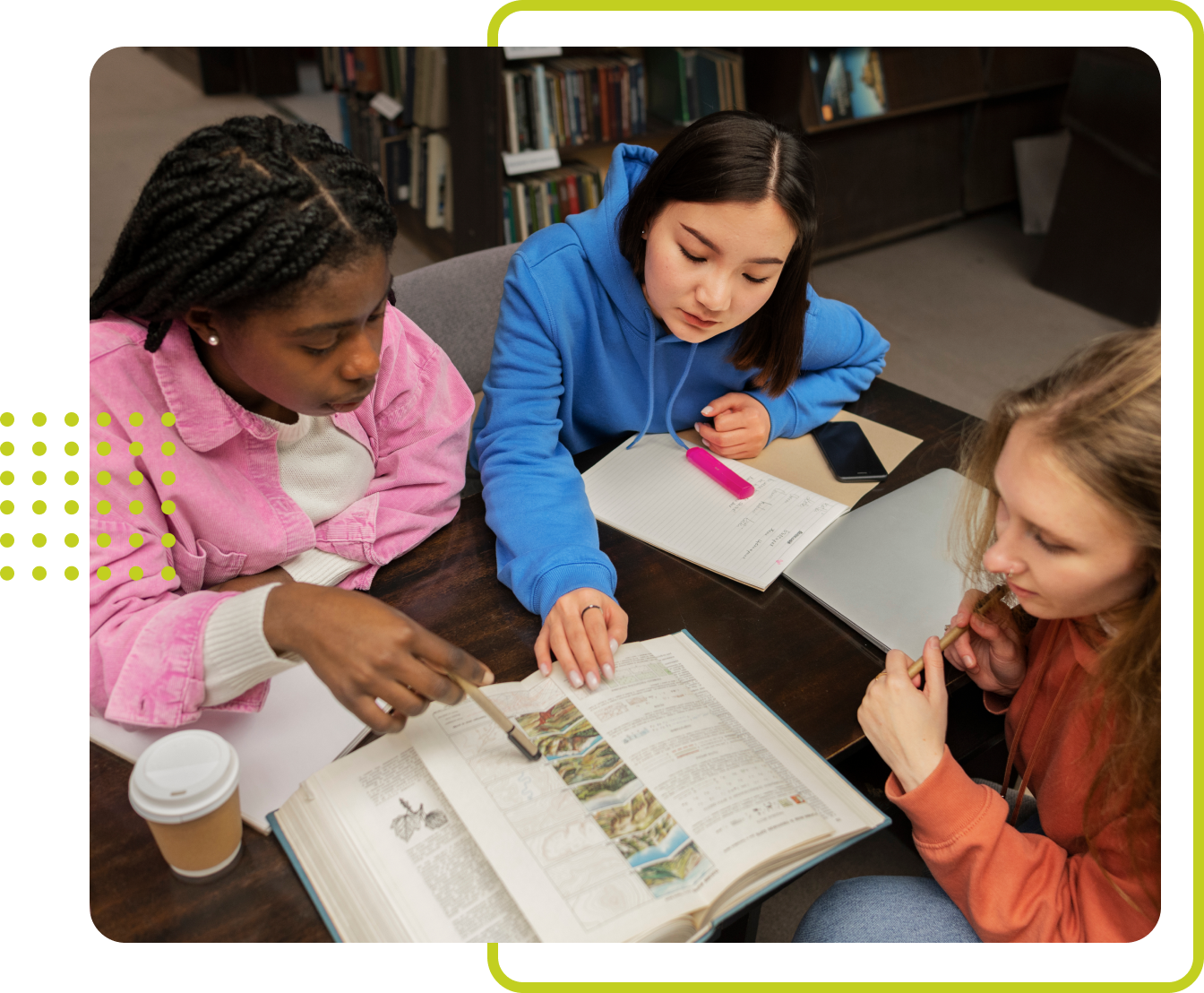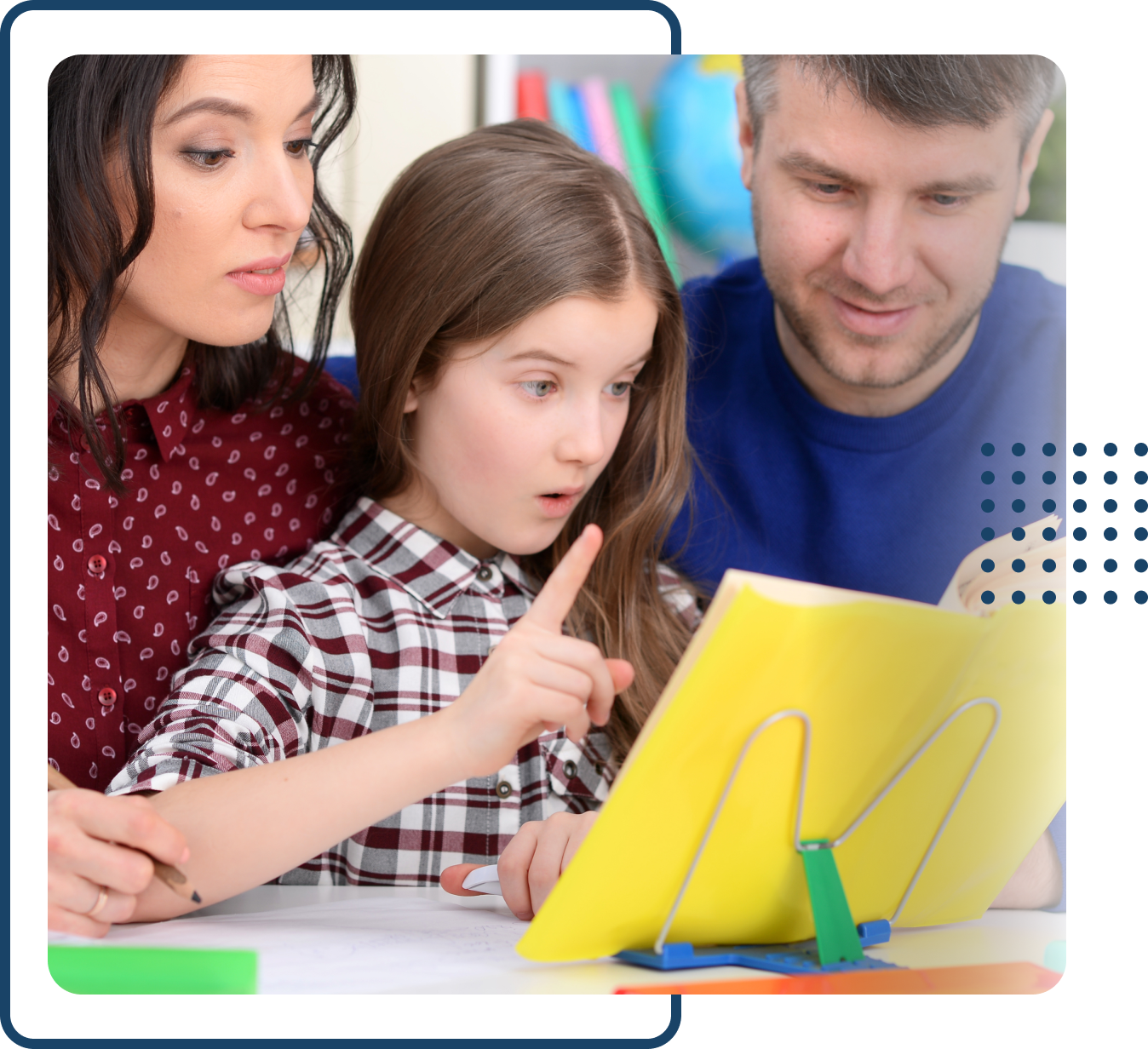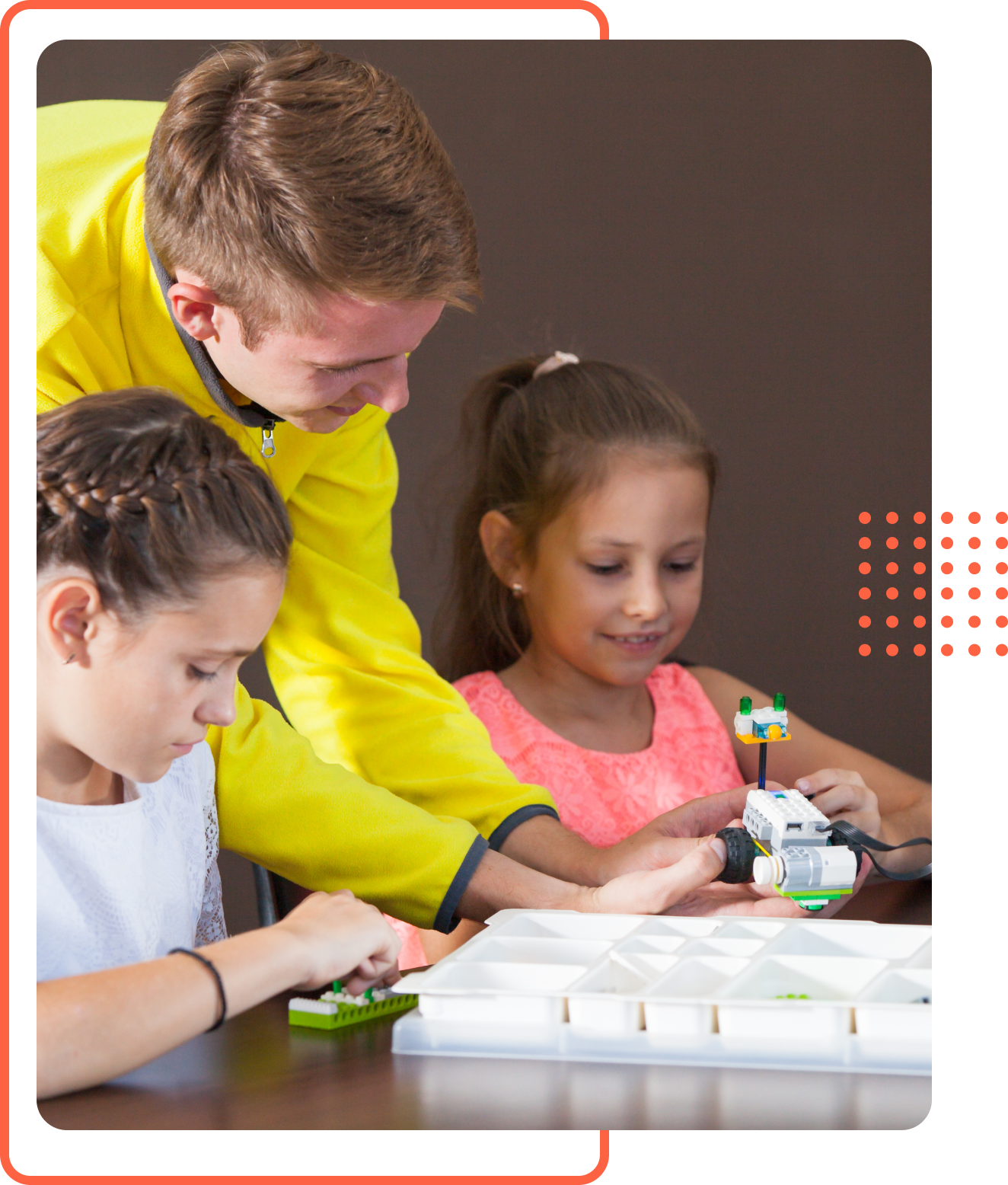Are you considering homeschooling your child but don't know where to start? The world of education has changed drastically over the years, and with it comes a plethora of resources for homeschoolers. In this blog post, we will explore the different types of homeschooling books available and how they can help enhance your child's learning experience. We will delve into curriculum-specific books, award-winning titles, and books that incorporate fun activities into learning.
- Exploring Different Homeschooling Books
- Exploring the Benefits of Diverse Homeschooling Books
- Curriculum-Specific Books for Homeschooling
- How do you choose the right homeschooling books for your child's learning style?
- Navigating Homeschooling Books by Grade Levels
- Subject-Specific Books for Homeschooling
- Incorporating Fun Activities into Homeschooling
KEY TAKEAWAY
- Explore a wide range of homeschooling books catering to various learning styles and preferences.
- Find books tailored to specific curriculum needs, providing structured guidance for lesson planning and execution.
- Explore books that integrate interactive and engaging activities to make learning enjoyable for children.
- Utilize homeschooling books to tailor your child's education according to their interests, strengths, and learning pace.
With diverse learning resources, homeschooling can be an excellent opportunity to personalize your child's education. So whether you're new to homeschooling or have been doing it for years, Great Homeschool Conventions has something for everyone looking to take their child's education beyond textbooks!
Exploring Different Homeschooling Books
Now that we understand the growing trend of homeschooling and the reasons families choose this educational approach, let's explore the different types of homeschooling literature available. Starting homeschooling goes beyond traditional textbooks, offering a wide range of resources that cater to various educational needs and learning styles. From language arts to mathematics, science, and social studies, homeschooling literature provides a wealth of educational materials that can be tailored to meet the unique needs of each learner.

Essential Diverse Learning Resources for a Rich and Fulfilling Homeschooling Experience
Diverse learning resources are crucial in homeschooling, as they cater to the individual educational needs and interests of learners. Homeschooling books offer a rich variety of resources that go beyond the confines of traditional textbooks, providing opportunities for hands-on learning, nature study, and exploration of different subjects. By incorporating diverse literature into their curriculum, families can create a well-rounded educational experience that captures the interests of each learner. Whether it's through engaging literature, interactive workbooks, or comprehensive study guides, literature serves as valuable resources that nurture a love for learning and support the growth of well-rounded individuals.
Exploring the Benefits of Diverse Homeschooling Books
Using a variety of homeschooling books has numerous benefits. First, it caters to the different learning styles and preferences of learners, ensuring that each child is engaged and motivated in their educational journey. Secondly, incorporating a variety of homeschooling books fosters a holistic approach to education, integrating multiple subjects and perspectives. This helps learners develop a broader understanding of the world around them. Additionally, literature offers opportunities for nature study, connecting learners to the natural world and encouraging environmental awareness. or families homeschooling in Colorado, diverse homeschooling books can also provide insight into the state's rich natural landscapes, history, and cultural heritage, allowing learners to gain a deeper appreciation for their local environment and community. By embracing variety in literature, families can create a dynamic and enriching educational experience that goes beyond textbooks.

Curriculum-Specific Books for Homeschooling
In addition to the diverse learning resources available, literature also caters to specific curriculum needs. These curriculum-specific books provide comprehensive materials that align with educational standards, ensuring that learners receive a well-rounded education across various subjects. From multi-subject curricula to grade-specific breakdowns, learning can offer a structured approach to homeschooling, supporting the progression of learning and meeting the educational needs of learners at different grade levels. Let's dive into the world of curriculum-specific literature and explore the options available to families.

Understanding Multi-Subject Curriculum
Multi-subject curricula encompass a wide range of educational materials, providing a comprehensive learning experience for families. These curricula offer an integrated approach, connecting different subjects to create a cohesive educational curriculum. For example, the Charlotte Mason curriculumemphasizes the importance of a well-rounded education, incorporating literature, nature study, and hands-on activities into the learning experience. Multi-subject curricula cater to diverse educational needs, offering resources for language arts, grammar, comprehension, mathematics, science, social studies, and more.
How do you choose the right homeschooling books for your child's learning style?

Navigating Homeschooling Books by Grade Levels
Now that we understand the growing trend of homeschooling and the reasons families choose this educational approach, let's explore the different types of homeschooling literature available. Homeschooling goes beyond traditional textbooks, offering a wide range of resources that cater to various educational needs and learning styles. From language arts to mathematics, science, and social studies, homeschooling literature provides a wealth of educational materials that can be tailored to meet the unique needs of each learner.
Choosing the Perfect Books for Your Pre-K & Kindergarten Homeschooler
-
1. Captivating picture books: Build early literacy with fun visuals.
-
2. Interactive books: Boost comprehension, vocabulary, and language skills.
-
3. Nature storybooks: Spark curiosity and environmental awareness.
-
4. Hands-on activity books: Make learning fun and engaging through play.
Cultivating Curious Learners in Elementary School (1st-5th grade):
-
1. Illustrated books: Draw them into literature and language arts.
-
2. Chapter books: Enhance reading fluency, comprehension, and vocabulary.
-
3. Workbooks: Reinforce essential language arts skills like phonics and grammar.
-
4. Art & craft books: Encourage creativity and artistic expression.
Engaging Books to Empower Your Middle School Homeschooler (6th-8th grade):
-
1. Biographies & autobiographies: Inspire self-discovery with life stories.
-
2. Historical fiction: Bring social studies alive with captivating narratives.
-
3. Nature study books: Foster scientific inquiry and appreciation for the natural world.
-
4. Adventure books: Spark a love for reading and ignite the imagination.
Empowering Your High School Homeschooler (9th-12th grade):
-
1. Classic literature: Develop critical thinking and prepare for college-level reading.
-
2. Advanced math books: Challenge learners with algebra, geometry, calculus, etc.
-
3. Diverse books: Broaden perspectives and introduce different cultures and ideas. world.
-
4. Elective books: Explore subjects beyond core curriculum requirements.
Subject-Specific Books for Homeschooling
In addition to grade-specific, subject-specific books play a vital role in the curricula. These books focus on specific academic disciplines, providing in-depth resources for language arts, mathematics, science, and social studies. By incorporating subject-specific books, families can tailor their curriculum to meet the educational needs and interests of their learners.
Language Arts:
-
1.
Craft a curriculum: Tailor it to your child's needs and interests, while meeting state graduation requirements. Plenty of resources are available in online homeschooling and in libraries including social studies and language arts.
Resources:
-
1.
Writing: Narrative, essay, poetry, journaling books to hone communication.
-
2.
Reading comprehension: Analyze literature, and build critical thinking skills.
-
3.
Grammar & Punctuation: Master mechanics and refine written expression.
-
4.
Phonics: Strengthen decoding and spelling abilities.
Mathematics:
-
1.
Focus: Cultivate critical thinking, problem-solving, and numerical literacy.
Resources:
-
1.
Workbooks: Reinforce core concepts like addition, subtraction, multiplication, and division.
-
2.
Problem-solving: Apply knowledge, and develop mathematical reasoning.
-
3.
Comprehension: Gain deeper understanding, and connect concepts to real-world applications.
-
4.
Phonics: Strengthen decoding and spelling abilities.
Science:
-
1.
Focus: Ignite scientific inquiry, build critical thinking, and explore the natural world.
Resources:
-
1.
Biology & Chemistry: Investigate life forms and matter composition.
-
2.
Physics: Unravel the mysteries of motion, forces, and energy.
-
3.
Anatomy & Physiology: Delve into the human body's intricacies.
-
4.
Nature Study: Connect with the environment, and foster eco-awareness.
Social Studies:
-
1.
Focus: Expand cultural awareness, historical understanding, and geographical knowledge.
Resources:
-
1.
History: Travel through time periods, and connect with past events and cultures.
-
2.
Geography: Explore world regions, and understand maps and cultural diversity.
-
3.
Civics & Government: Learn about your rights, responsibilities, and democratic processes.
-
4.
Economics: Make informed financial decisions, and grasp economic concepts.
By carefully choosing books that pique your child's curiosity, resonate with their evolving identities, and offer opportunities for engagement and discussion, you can empower them to navigate the school maze with confidence and a renewed love for learning. Remember, the right book can become a trusted companion, a source of inspiration, and a springboard for incredible discoveries!
Incorporating Fun Activities into Homeschooling
Homeschooling doesn't have to be limited to books and worksheets. It can be an engaging and interactive learning experience for the whole family. By incorporating fun activities, families can make learning enjoyable, hands-on, and memorable. From role-playing to experiments, arts and crafts, and nature study, there are various ways to incorporate fun activities into homeschooling. These activities allow learners to explore, experiment, and apply what they have learned, fostering a deeper understanding of concepts and promoting engagement and creativity in the learning process.

Beyond Textbooks and Lectures: Unlocking the Transformative Power of Hands-On Activities in Learning
Hands-on activities play a vital role in homeschooling, as they promote experiential learning and engage learners in a tactile and interactive way. By engaging in hands-on activities, learners can deepen their understanding of concepts, develop problem-solving skills, and make connections between theoretical knowledge and real-world applications. These activities foster an engaging and dynamic learning environment, immersing learners in the educational process and encouraging curiosity, creativity, and critical thinking. By incorporating hands-on activities, families can create a learning experience that goes beyond textbooks, empowering learners to become active participants in their own education.
What are some popular homeschooling books that cover a wide range of subjects?
Some popular homeschooling books that cover a wide range of subjects include "The Well-Trained Mind" by Susan Wise Bauer and Jessie Wise, "Teach Your Child to Read in 100 Easy Lessons" by Siegfried Engelmann, "The Story of the World" series by Susan Wise Bauer, and "Math-U-See" curriculum by Steve Demme.
Conclusion

In conclusion, homeschooling provides a unique opportunity to tailor education to the needs and interests of individual learners. By embracing a variety of books, you can create a rich and diverse learning experience that goes beyond traditional textbooks. From curriculum-specific books to subject-specific resources and award-winning titles, there is a treasure trove of options available to cater to every learner's needs. To keep learning engaging and effective, don't forget to incorporate fun activities and hands-on learning experiences. If you need guidance or recommendations on books, feel free to get in touch with our experts. We are here to support you on your learning journey.
 Resources
Resources
 Curriculum
Curriculum
 Workshop Sessions
Workshop Sessions

